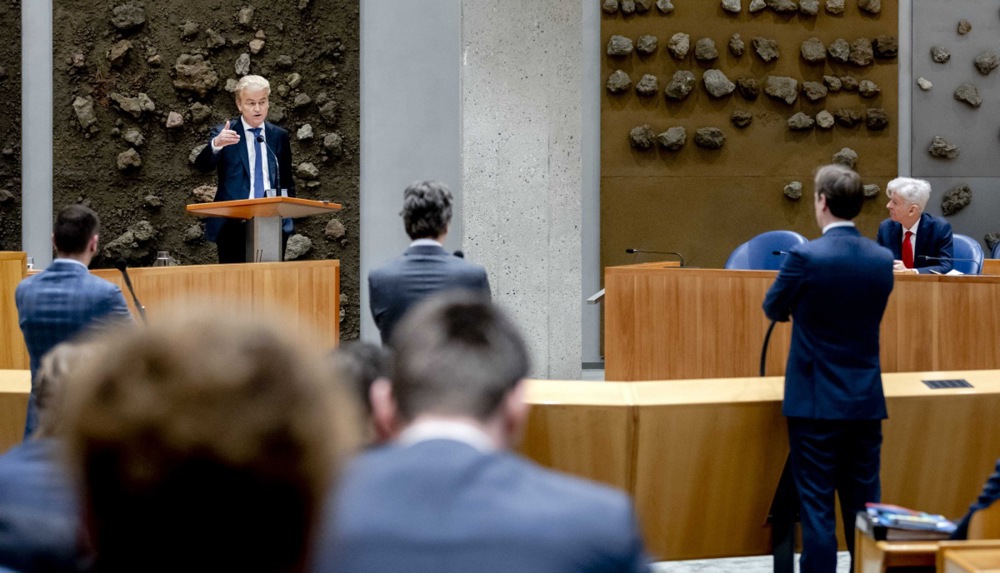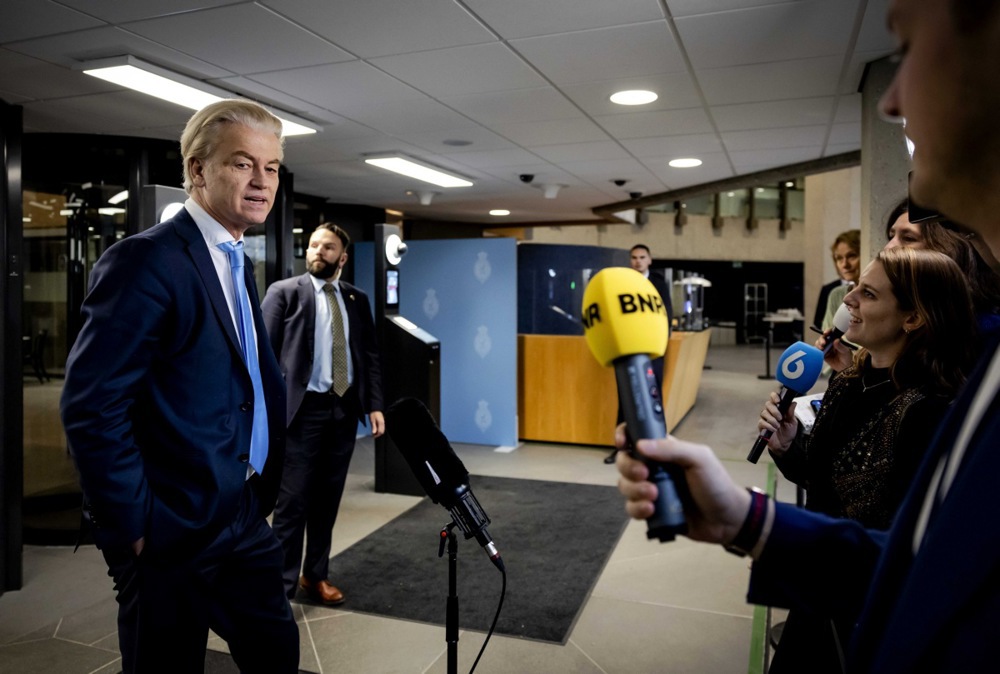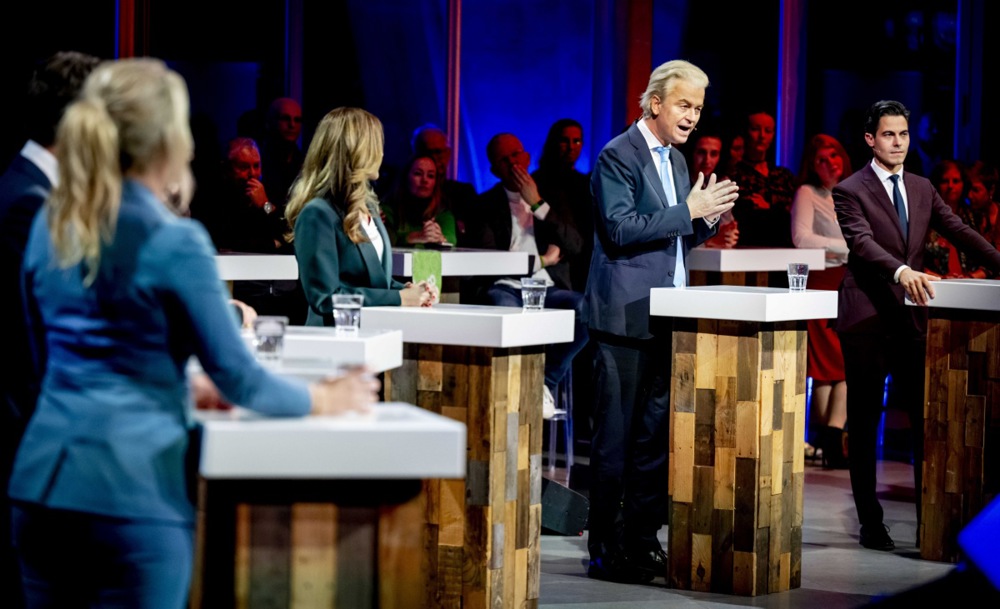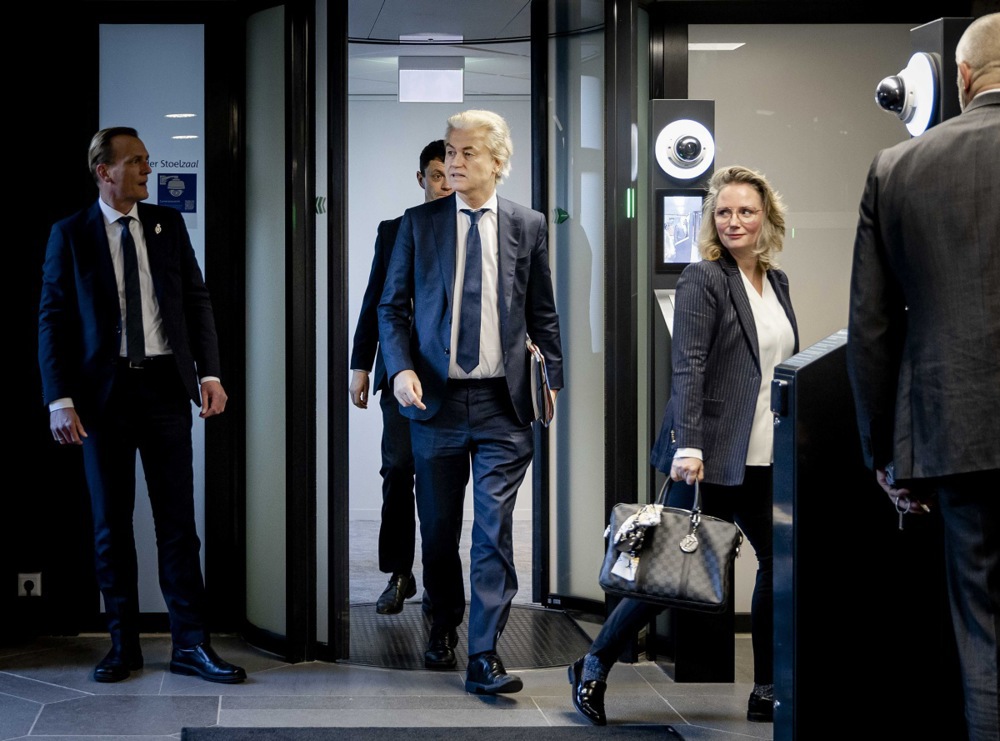After months of difficult negotiations in the Netherlands – and not a little drama – it looks as though progress is being made on forming a government coalition.
The four heavyweight parties indicated they were willing to deliver ministers in a new right-wing Cabinet.
Lead negotiator Kim Putters said that, after a round of “intensive” talks between Geert Wilders’ right-wing PVV, the Liberal VVD, the Christian Democrat centrists of the New Social Contract (NSC) and the Farmer-Citizen Movement (BBB), some “concrete results” have been achieved.
It was the first time Putters had spoken with the four party leaders together during this round of talks after negotiations broke down earlier, mainly due to NSC leader Pieter Omtzigt’s opposition.
“This was necessary,” Putters said regarding the two-day talks where, above all, mutual trust needed to be restored.
It now meant, he said, the negotiations could “move forward”, although Putters did not make clear what he meant.
It is expected that his final report will offer more clarity on the matter and will be presented to the Dutch Parliament on March 14.
The involved party leaders appeared somewhat sanguine regarding the outcome.
Caroline van der Plas of the BBB said she was “very positive” about the “good talks”, while Omtzig stressed the whole affair had been “very hard work”.
Dutch media reported the parties were working on a limited, open coalition agreement, giving more leeway to Parliament in line with Omtzigt’s earlier demands.
In return for that apparent concession, the NSC said it would also provide ministers, meaning a closer affiliation with a possible government where Wilders’ party is likely to be the leading force, rather than merely snipe from the sidelines.
The main subjects of the proposed agreement are said to be public finances, migration and the Netherlands’ role on the international stage.
On February 24, Wilders indicated he and his party were open to supporting Ukraine.
A short coalition agreement would be expected to focus on a limited number of topics, with MPs taking a greater role in policy-making.
Who might get what post or ministry has not been discussed but it has been indicated that “outsiders” could be in the running.
The four party leaders intend to retain their seats in Parliament, thereby eliminating the possibility of Wilders assuming the role of Prime Minister – but some doubt the practicality of such an arrangement or its chances of success.





